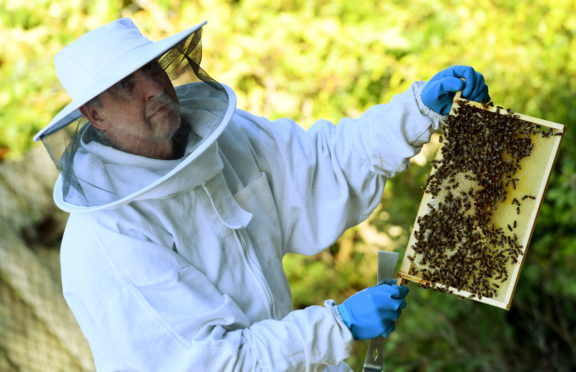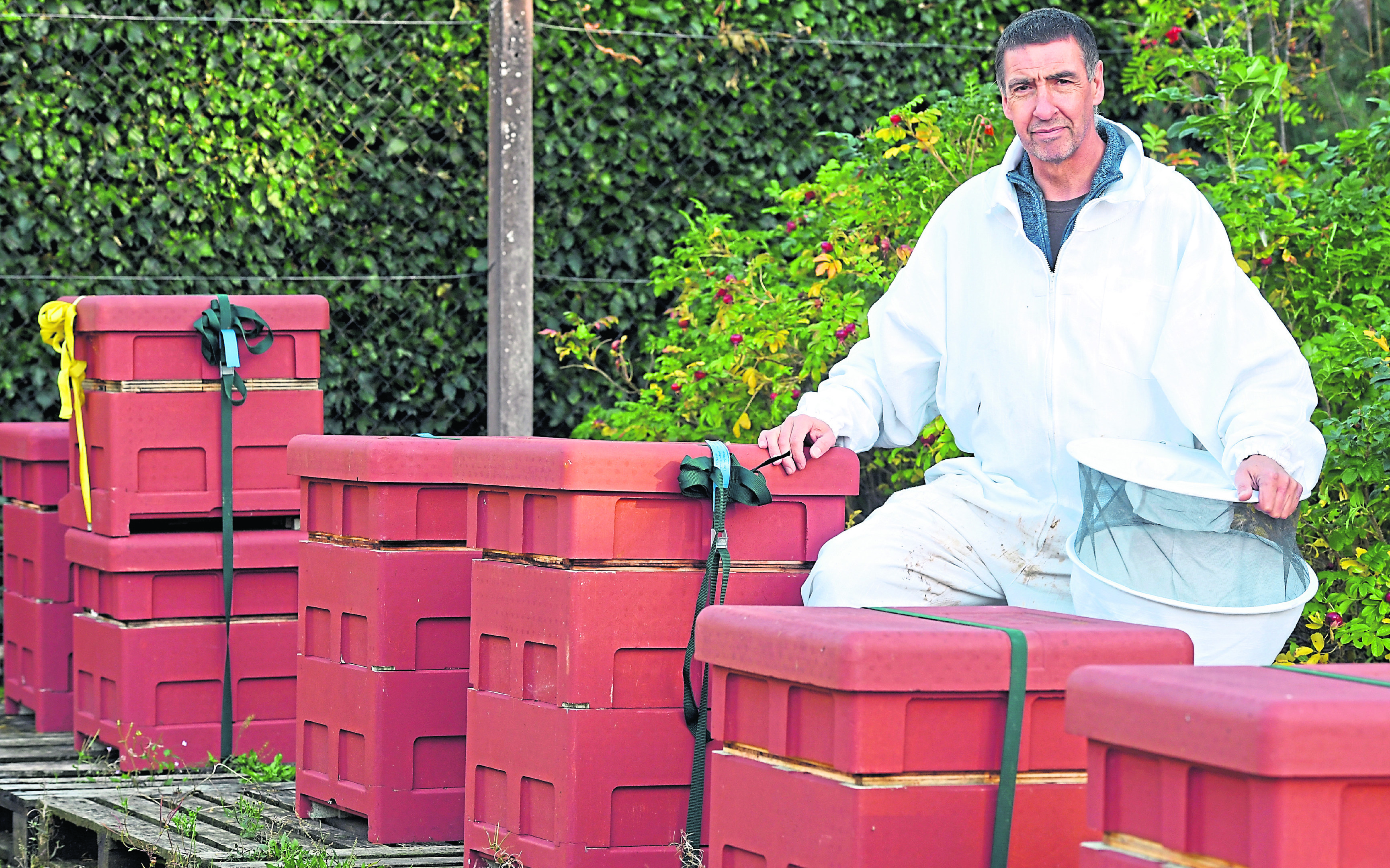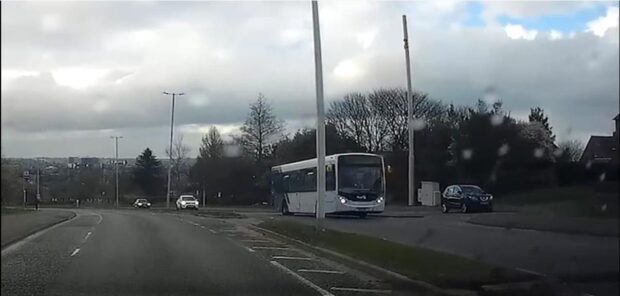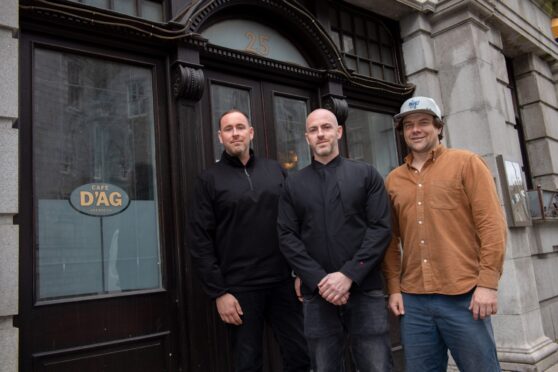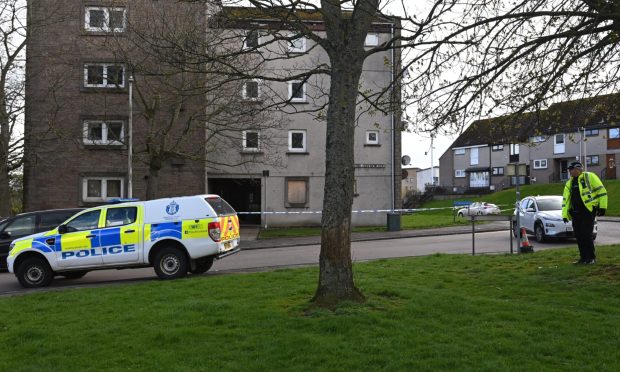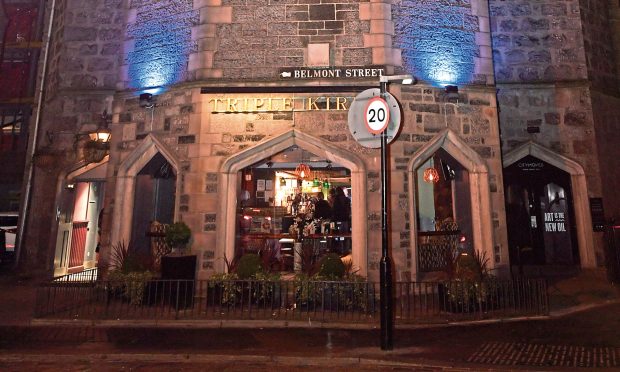A beekeeper has been left distraught after thieves stole four of his five hives – containing around 60,000 bees.
Erling Watt kept his colony on a farm just outside Peterhead, and was hoping to start making honey to fund his upcoming retirement.
But when he went to check on the apiaries earlier this week, he discovered they were gone.
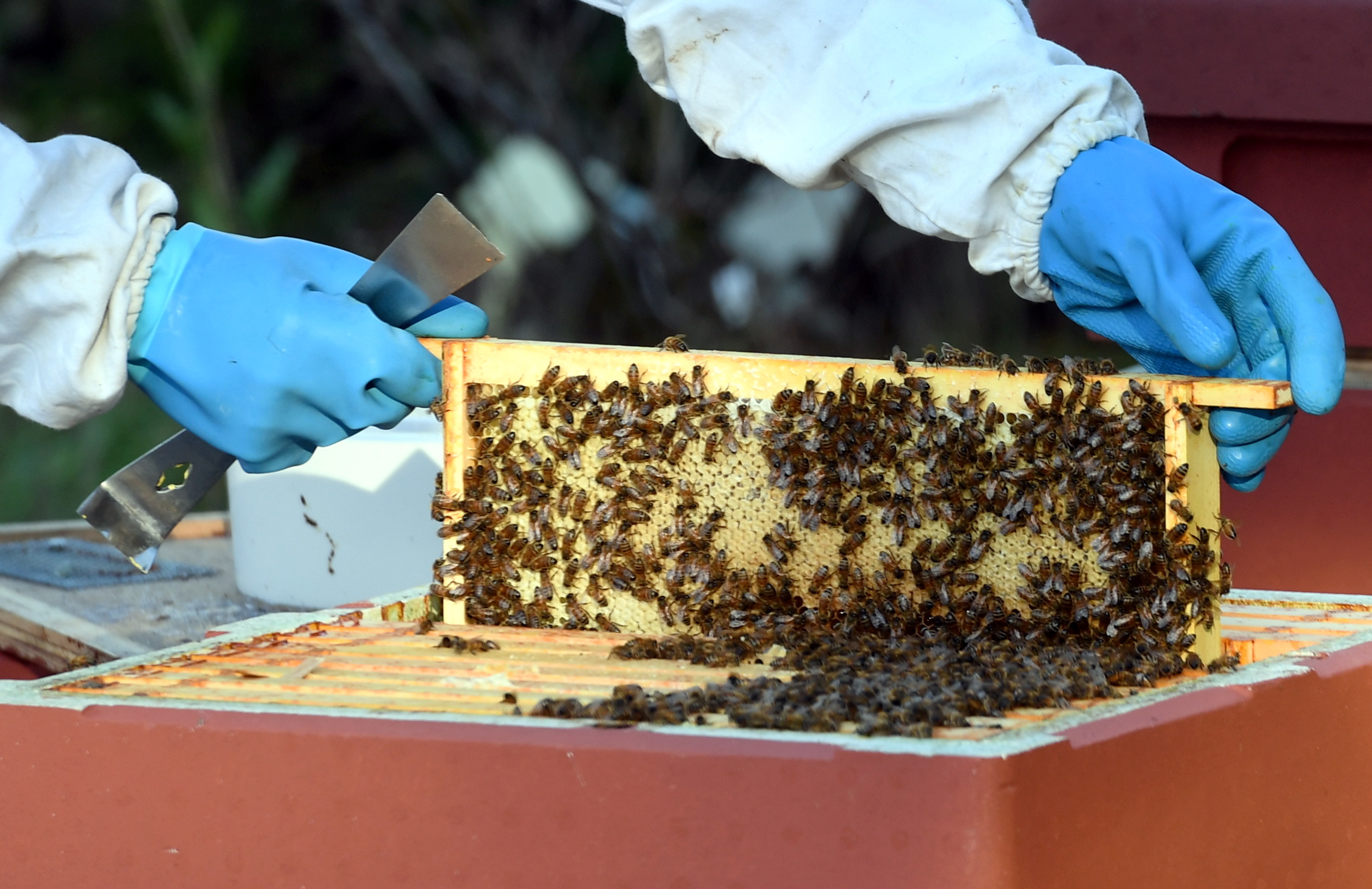
Each hive contains between 12,000 and 15,000 bees and are worth hundreds of pounds.
Mr Watt was using the nucleus or smaller hives to help him launch his own honey production business.
The 59-year-old is in preparing to leave his job as a prison officer at the end of the year so he can become a full-time beekeeper.
>> Keep up to date with the latest news with The P&J newsletter
He, and the Aberdeen and District Beekeepers Association, believe it was a well-planned crime, as a “casual thief” wouldn’t know how to move them.
Police last night confirmed they are investigating the matter.
Mr Watt, who lives in Longside, said: “I’ve been keeping bees for years and it is something I enjoy.
“The hives are quite small and they were kept in stands I made myself. It is not something any normal thief would come and take.
“I suspect they were taken on Tuesday because when I came in the gate had been left open.
“There was a lot of heavy rain and it looks like there were fresh tyre tracks too.
“They were really strong colonies and they were getting ready for winter.
“I was hoping to use the hives to produce money so I can sell it at local markets. It is meant to be a sideline for me after I retire.
“The value of the hives and the bees is about £700, but a lot of man hours have been put into this as well.”
Malcolm Watson, secretary of the Aberdeen and District Beekeepers’ Association, described the theft as “sad”.
He believes only those with specialist know-how could have taken the apiaries.
Mr Watson said: “It is unusual but it does happen and it is rather sad for us.
“It must be being done by other keepers because a casual thief wouldn’t want the bees and they wouldn’t have the knowledge to move them.
“We think of beekeeping as a sociable hobby or a business, but clearly there is someone who thinks it is OK to do that.
“Bees are often kept in remote places so can be near to crops.
“Some people move their hives and try not to put them in obvious places.”
“It is hard for us to protect against and the main problem is we can’t keep an eye on them all the time.”
Last night police urged people who may have seen something suspicious to come forward.
Constable Markus Al-Khalidi said: “We are appealing for witnesses following the theft of beehives from the Blackhills area of Peterhead between Saturday September 15 and Tuesday September 18.
“Anyone with information is urged to contact police on 101.”
Information can also be passed anonymously to Crimestoppers on 0800 555111
The theft of bees and their hives is not a new phenomenon.
The increasing value of the industry – boosted further by the diseases that have taken their toll on many hives – has seen apiaries in Scotland and across the UK targeted in heists in recent years.
In April 2014, more than £1,000 worth of bees were stolen from Balgrove Farm in Perthshire.
Six queen bees, a large number of working bees and 18 honeycomb frames owned by Coupar Angus-based firm Benrose were taken.
Just two weeks later, an apiary in a wood near Forfar in Angus was targeted, with three queen bees, 45,000 working bees and three honeycomb frames stolen.
Three years before those incidents, four hives containing several thousand bees were taken from Ninewells Hospital, Dundee.
The insects were being used as part of a £2 million research project led by Dundee University.
But the incidents on Tayside have some way to go to top the UK’s biggest ever bee theft, which took place in Oxfordshire at the start of the year.
Thieves stole forty hives containing more than one million bees from family firm Beekeeper Honey in February.
It is thought to have been the largest theft of its kind.
